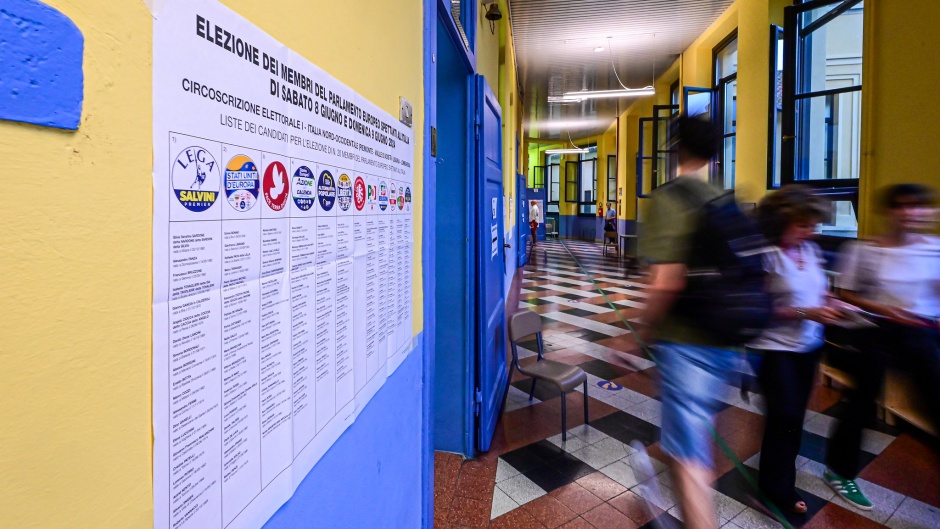A more conservative European Union for an uncertain future
The hard right and nationalists will not be indispensable in the new European Parliament but hey shake the national scenario in countries like France and Germany.
BRUSSELS · 10 JUNE 2024 · 12:30 CET

After 5 days of voting, the European Union has a new parliament, and it is more conservative than it was before.
The winners are again the European People’s Party (EPP), which increased its representation to 186 seats (ten more than in 2019). Their ‘spitzenkandidat’, Ursula von der Leyen, is expected to continue as the president of the European Commission (the government elected by the parliament) for 5 more years.
“We are the anchor of stability”, she said on Sunday 9 June, “we will build a bastion against the extremes from the left and from the right”.
No big changes in Brussels…
The EPP will most probably get the support of the centrist-liberal Renew party, a pro-EU group that came third, with 79 seats (despite losing 23).
On the other side of the spectrum, the Socialists and Democrats obtained 135 seats (four less) while other groups on their left also lost ground: the Greens fell from 72 to 53 and The Left lost one to end with 36.
It is the hard right and nationalistic populists that have celebrated the best results so far, combining for a 25% of the vote, according to estimates across the EU.
The European Conservatives and Reformists (ECR) got 73 seats while Identity and Democracy (ID) celebrated an increase of 9 seats to reach 58. Their rise, though, is not enough to become decisive force to radically change the policies of the European Union in matters of immigration, national sovereignty and other issues they campaigned for.

An European Union officer presents the outcome of the European elections on 9 June. / Photo: Flickr European Parliament. … but earthquakes in France and Germany
The elections may not have led to a massive scenario change in Brussels, but they opened crises for those in power in several countries.
The large victory of Marine Le Pen’s far-right National Rally party in France (with over 30% of the vote) forced President Emmanuel Macron to announce the dissolution of the parliament and a snap election for 30 June, saying he had “heard the message” of the population.
Germany saw a record turnout in a European election, with 65% of the population casting their vote. In this context, the Social Democrat party of Chancellor Scholz was clearly defeated, coming third, not only behind the conservative opposition of CDU but also behind the far-right nationalists of Alternative For Germany, which celebrated the best ever result. The opposition has called for a new federal election.
In Belgium, the centrist Prime Minister Alexander De Croo, announced his resignation after only obtaining 7% of the vote.
The Christian Political Movement loses one seat
Some of the small parties that form the European Christian Political Movement (ECPM) succeeded in maintaining their seat in the European Parliament, reported CNE News.
It is the case of Bert-Jan Ruissen, from the Netherlands (Reformed party SGP), Helmut Geuking from Germany (Party of the Families), and Cristian Terhes from Romania (National Conservative Party).
On the other hand, Anja Haga of the Netherlands (Chrisian Union) and Márton Gyöngyösi from Hungary (Jobbik) lost their seats.
But the ECPM will add a new representative from Latvia, Vilis Kristopans (Latvia First).
There are other outspoken Christian politicians in other parliamentary groups which do not specifically present their faith as a central marker of their policies.
One more year
Learn all about our #OneMoreYearEF campaign here (English).
Published in: Evangelical Focus - europe - A more conservative European Union for an uncertain future
